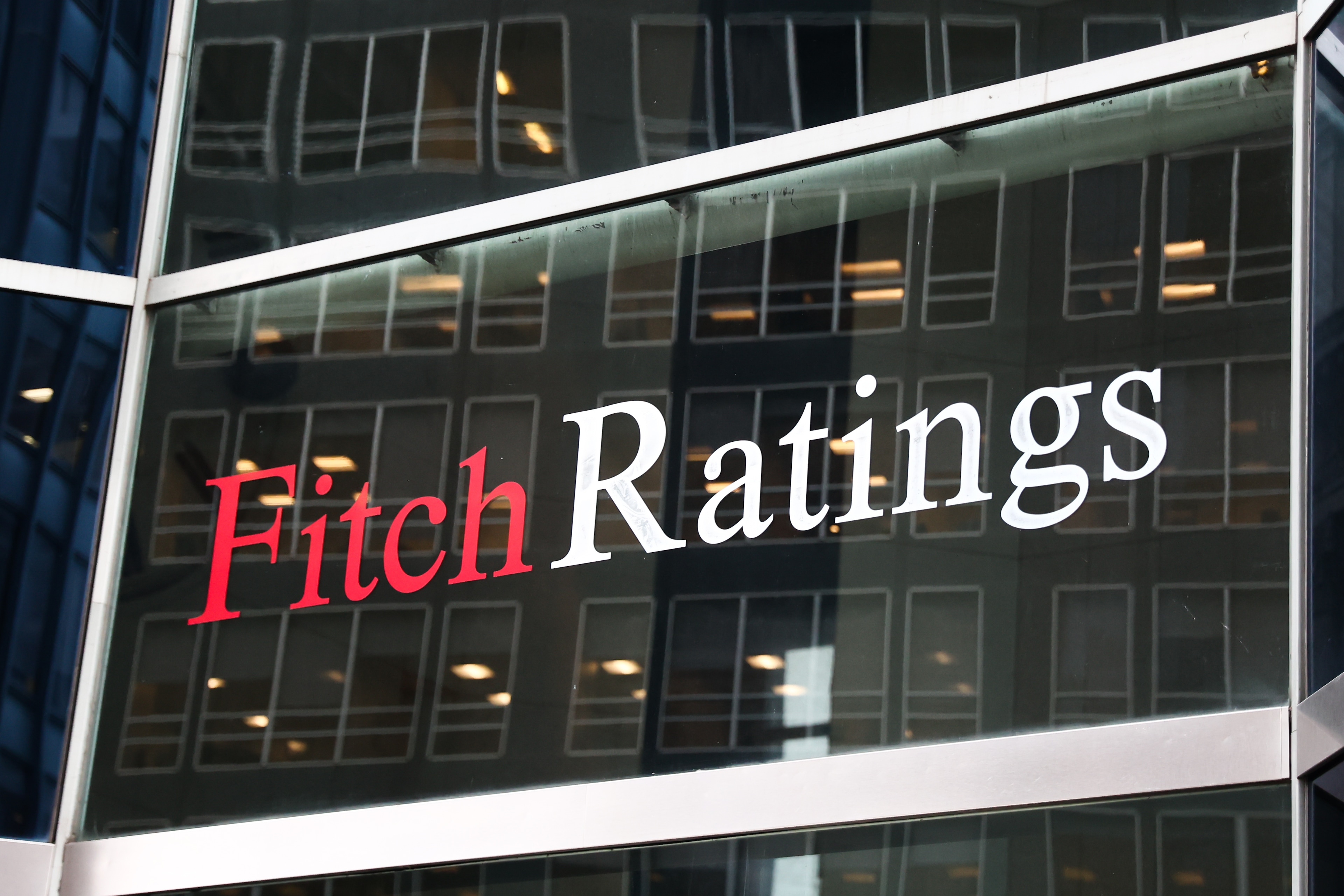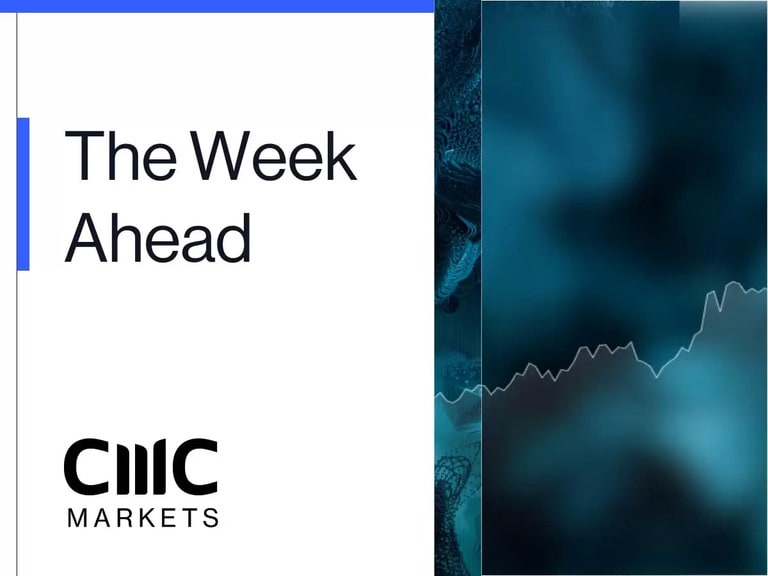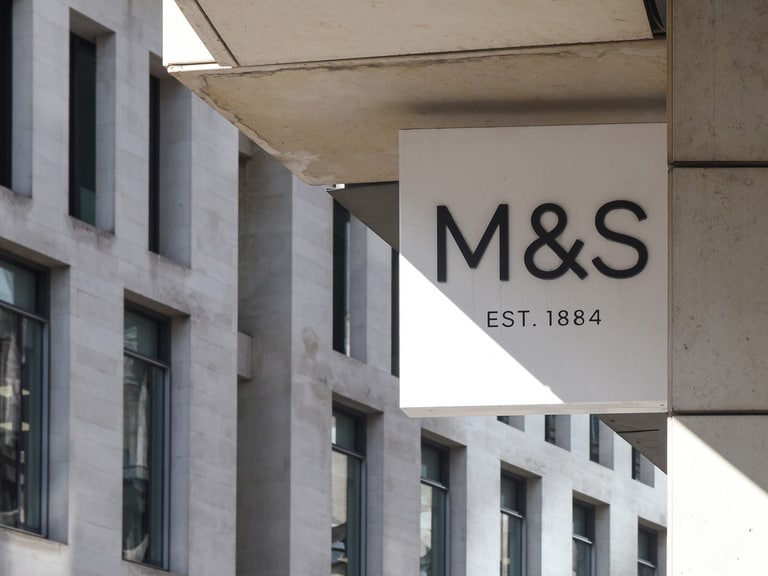It’s been a negative day for markets in Europe with only a handful of stocks in positive territory on the FTSE 100 after ratings agency Fitch slapped the US with a downgrade of its AAA rating to AA+, prompting a sharp sell-off in Asian markets.
Europe
The effect of the downgrade appears to be being felt more keenly by Asia and European stocks, however one can’t help feeling that the action really doesn’t change that much when it comes to the overall global growth outlook, which means today’s move lower could simply be just another dip-buying opportunity. Time will tell.
The timing of the intervention was curious as well with the agency criticising the deterioration in political governance over the continued multiple stand-offs over the debt ceiling and rising debt levels, as if this was a new thing, ignoring the fact that it has been an ongoing theme for the last 10 years. If anything, the decision has come a decade too late given Standard & Poor’s did a similar thing over 10 years ago.
The report made several accurate observations about the US fiscal situation, as well as its governance, however none of what was outlined by Fitch in yesterday’s report is a surprise to most people. The loss of the AAA rating is damaging from a political point of view, but it changes little in the wider scheme of things when it comes to the investability of the US relative to its peers. It’s not as if China, or any other country in Europe is any safer when it comes to investability, as well as political stability.
Nonetheless the downgrade appears to have prompted further profit taking on the back of the weakness that started yesterday, due to concerns over weaker economic data, and the earnings outlook.
The handful of stocks in positive territory on the FTSE100 has included BAE Systems and Taylor Wimpey who both posted positive first half trading updates today.
Since the Russian invasion of Ukraine, BAE Systems share price has gone from strength to strength, hitting record highs of 1,030p earlier this year, although the shares have slipped a little since then. Today’s H1 numbers have shown total sales rise by 11% to £12bn, with new orders of £21.1bn taking the total backlog to £66.2bn. Operating profits have also seen strong gains, rising 20% to £1.2bn, with the defence contractor declaring a dividend increase of 11% to 11.5p per share and approving a further £1.5bn share buyback program.
BAE also upgraded its full year guidance for sales growth to 7% from 5%, while boosting EPS guidance to between 10% and 12%.
Housebuilder Taylor Wimpey shares have edged higher today despite announcing a 21% decline in H1 revenue to £1.64bn, as well as a 44.5% decline in operating profit. Group completions also fell sharply, down from 6,922 in 2022 to 5,120
There has been a pickup in net private sales from the lows seen at the end of last year, however they are still down from last year’s 0.90, coming in at 0.71. The order book remains healthy at 7,866 homes; however, it is sharply lower from the 10,102 a year ago. Operating profits fell by 44.5% to £235.6m reflecting a 6bps fall in margin to 14.4%, due to higher build cost inflation.
A modest upgrade to guidance appears to have prompted a return of some confidence with full year completions now expected to be in the region of between 10,000 and 10,500, at the upper end of guidance and full year group operating profit between £440m and £470m.
ConvaTec Group is also having a solid day after reporting a 1.1% rise in H1 revenues to $1.055bn and a 41.7% increase in operating profits of $123.4m. The company also raised its full-year guidance for organic revenue growth of between 6-7.5%.
Vodafone shares have received a boost on reports that Emirates Telecoms CEO said that the company had submitted an application to raise its stake to 20%. The mobile telecoms giant also said it had agreed an up to 18-year roaming deal with 1&1 Mobilfunk in Germany.
Airlines have also taken a beating today despite both Ryanair and Wizz Air reporting that load factors in July saw a big jump on the previous year. Wizz Air said it saw a 27% increase in passengers in July, at a load factor of 95%, while Ryanair reported a rise of 11% to 18.7m passengers at a load factor of 96%.
US
US markets have taken their cues from the weakness in Asia and European markets and the loss of the US AAA rating from the Fitch credit rating agency, opening modestly lower, despite another bumper ADP payrolls report which saw 324k new jobs added in July. This added to the 497k added in June, with the numbers reinforcing the resilience currently being seen in the US economy and somewhat jar against the ratings action taken by Fitch last night.
Chipmaker AMD shares have seen some early gains after Q2 revenues came in better than expected at $5.36bn, although they were still down by 18% from the previous year. The main outperformer was in client revenue which beat expectations of $841m, as a recovery in PC demand saw revenues come in at $998m. Q3 revenue is expected to come in between $5.4bn and $5.6bn with demand for AI accelerators in data centres expected to boost revenue in this segment.
Starbucks shares are also in focus after reporting Q3 sales that fell short of forecasts. In the US comparable sales rose by 7%, less than expected, while net revenue came in at $9.2bn. China sales were a bright spot, rising 46%, although this was set against a weak comparable. For the rest of the year Starbucks reiterated its full year revenue guidance of between 10%-12% growth.
FX
It’s been a broadly positive session for the US dollar in the wake of the Fitch rating downgrade, with the greenback benefitting from its status as a haven trade, and another solid ADP payrolls report, which showed 324k new jobs added in July, on top of the 497k in June.
While it may seem somewhat counterintuitive to start buying the US dollar on the back of a report that is negative for the US economy, the move by Fitch only serves to highlight the US’s unique role in the global financial system. It is entirely understandable that Fitch has showcased the shortcomings in US governance and fiscal policy, however this isn’t news to anyone who has been following recent events around the debt ceiling, and the timing is even more curious given that was resolved weeks ago. The reality is that there is little alternative when it comes to stable assets, unless you consider the likes of the Euro, the Japanese yen, or the Chinese yuan, all of which have had crises of their own. Ultimately the US dollar is another example of a TINA trade when it comes to the depth and liquidity in the market.
The Japanese yen has managed to hold up reasonably well, benefiting from its position as a relative haven when stocks are selling off.
The pound has slipped back after another survey showed that UK consumer inflation expectations declined to 4.3% in July, down from 5% in June. With the Bank of England set to raise rates again tomorrow by a probable 25bps the eventual terminal rate has continued to decline from the peaks we were seeing above 6% just over a month ago, as more UK lenders cut their mortgage rates.
Crude oil prices have retreated after pushing up to 3-month highs in the wake of a huge weekly 15.4m draw on API inventories in data released yesterday. Gasoline inventories also fell more than forecast in a sign that demand was starting to pick up strongly as driving season in the US gets into full swing. The risk is that further price increases start to put a floor under the recent slowdown in inflationary pressure and weigh on economic activity in the second half of the year.
Volatility.
Another heavyweight US stock served up an outsized price reaction during Tuesday’s trade after Caterpillar trumped earnings expectations despite a deeper than expected pull back from the Chinese market. The underlying tacked on almost 9%, leaving one day volatility to come in at 58.99% against a one month reading of 35.44%.
A bullish stance on expectations of tightening supply when it comes to refined oil products saw RBOB Gasoline top price action in the commodities sector. Refinery issues are being cited so this is a story that could see further directional news flow emerge in the weeks ahead. One day vol on Gasoline hit 36.34% versus 29.18% on the month, whilst US Heating Oil saw prints of 35.08% on the day and 30.2% on the month.
The Aussie dollar was in focus as far as fiat currencies were concerned, with the RBA’s decision to leave interest rates unchanged – at least for now – taking a toll. That, combined with expectations of another BoE rate hike tomorrow, was sufficient to bolster support for GBP/AUD, sending the cross towards three-year highs as a result. One day vol stood at 11.82% against 8.95% for the month.
And the proprietary basket of EU Automobile stocks also saw elevated levels of price action in the wake of lacklustre earnings from BMW. The company cautioned that supply chain woes and inflation challenges were still lingering, sending the stock down more than 5% and weighing on sector peers, too. One day vol on the cohort came in at 33.86% against 25.66% for the month.
Disclaimer: CMC Markets is an execution-only service provider. The material (whether or not it states any opinions) is for general information purposes only, and does not take into account your personal circumstances or objectives. Nothing in this material is (or should be considered to be) financial, investment or other advice on which reliance should be placed. No opinion given in the material constitutes a recommendation by CMC Markets or the author that any particular investment, security, transaction or investment strategy is suitable for any specific person. The material has not been prepared in accordance with legal requirements designed to promote the independence of investment research. Although we are not specifically prevented from dealing before providing this material, we do not seek to take advantage of the material prior to its dissemination.







